Women in Maths

Women in Maths Day (12 May) celebrates female mathematicians around the world.
We interviewed women for whom maths is at the core of their job. Whether it is statistics, bridges or budgets these women rely on maths every single day. We caught up with them whilst they are working at home to find out about their jobs, how they got into them and why they love them.
Kids (and adults!) often struggle to identify why maths is useful unless they want to be a maths teacher or banker. Talking to kids about the maths you use at work can help them build a positive relationship with maths and relate their schoolwork to their future.
Share on via Facebook or Bluesky, or email us at mathsweekscot@nms.ac.uk
#ShowYourWorking #WomenInMaths #MathsWeekScot
Huge thank you to the stars of our videos for filming themselves at home during lockdown and sharing their jobs with us.
Videos by Heehaw
Clara Low: Textile Conservator at National Museums Scotland
Clara looks after objects in a museum collection, which are made of textiles. She carries out treatments, to improve the condition and appearance of the objects, but without trying to make them look new.
Find out more about her role and others at National Museums Scotland
What does your job involve?
My work often involves tasks like cleaning, tracing areas of damage and preparing for exhibitions. Whilst conservation is usually the behind the scenes kind of role, good communication really matters. Whether you are liaising with other museum staff, like curators and technicians or whether you're talking to members of the public to help bring the work museum alive. Another treatment we often do, is stitching patches over full support of new fabric, behind we care is of historic textile. We'll first dye the new fabric to match the historic textile and then we'll secure it in place using special conservation stitching techniques.
What skills do you use in your role?
My work is very practical, so accurate manual skills are really important part of the job, especially as so many of the things we work with are fragile and irreplaceable. Manual skills come to everything, from the fine stitching we do when applying support patches to areas of damage, through to things like handling large objects like tapestries, as well as working in the lab.
How is maths important in your role?
When cleaning and dyeing textiles, everything we do is carefully tailored to the specific needs and condition of the individual objects. Accurate measurements and calculations are vital. When we dye new fabrics to match historic textiles, we create bespoke dye recipes and use mathematical formula, to work out precise quantities and proportions of the different chemicals and dyes that we need. We start by dyeing several small samples, which are all certainly different variations of the same basic color. When working with such small samples of fabric and such precise color variations, even an 0.1 millimeter difference in the amount of different dye colors, will have a visible difference in the outcome. Therefore, accuracy is really important.
Once we've dyed our samples, we pick the one which best matches the historic textile and then we use maths to scale up the recipe, so that we can dye a larger quantity of the exact same color. I love the variety, I get to use a really wide range of skills from day to day and every object I work with is unique. So there are always things to discover and new challenges to solve.
Rachel Wood: Civil Engineer at Forth Road Bridge
Rachel delivers maintenance and improvement projects to the bridge, surrounding road network and structures.
What do you love about your job?
I love the variety of my job. I love working in a team to deliver a goal. Sometimes that is in the office coming up with new ideas and designs, or out on site putting those ideas into action.
I have travelled all over Scotland and get to see sights not many people get to see, like the view from the top of the Forth Road Bridge or inside old railway tunnels
Your favourite moment of your job so far
There’s been a few highlights.
Learning to use roped access techniques to inspect bridges by abseiling was a real achievement for me.
Being part of the team to deliver the successful repair works to the cracked Truss End Link on the Forth Road Bridge.
Standing on a platform that I had designed was a proud moment, to see something that you’ve worked hard to develop be created and used is a great feeling.
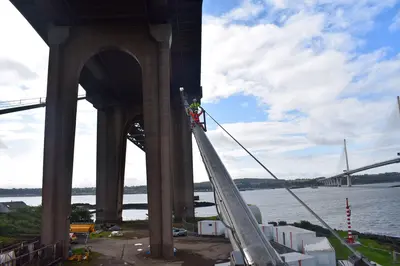
How does my work impact others?
Looking after the bridge and surrounding road network keeps the roads open and safe for people to travel. A lot of the maintenance work we do goes on behind the scenes but without proper maintenance there could be travel disruption, potholes or anything up to bridge collapse.
What is one thing people assume about your job that isn’t true?
Quite often people assume my job must be really hard or I must be really clever. Whilst it can be challenging you are part of a team and there are roles to suit everybody's strengths. We’re also all constantly learning!
What originally got me interested in maths?
I enjoyed maths at school and got a sense of satisfaction from solving problems. Doing further study in maths and physics, I enjoyed finding out the practical ways we use maths.
How did you get into your career?
When I was at school and considering what to do next, I looked at different courses and what entry requirements matched the subjects I enjoyed. This lead me to look at civil engineering. After studying for my Masters in Civil Environment Engineering I applied for a graduate training job to continue my professional development.
In what ways is maths important in society?
Maths is all around us. Sometimes it is obvious and complex like when we’re studying engineering or physics. Sometimes it is as simple as making sure we get the correct change at the shops or keeping score at a sports game.
We can’t really avoid maths and that is why it is important we have a positive engagement with maths and that is achievable for everybody.
Where can people go for more information on becoming a civil engineer?
Forth Road Bridge website is ideal for people looking to pursue related careers. There’s many routes into engineering- modern apprenticeships, study at college or university.
Lots of companies offer work experience which can be a great way to see what the industry is really like and https://www.tomorrowsengineers.org.uk/ has a lot of good resources.
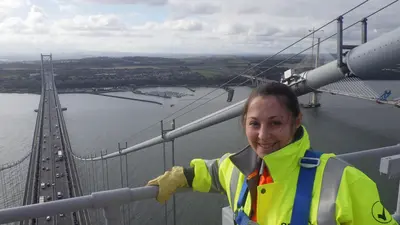
Kate Forbes: Cabinet Secretary for Finance
Kate Forbes is a Member of Scottish Parliament and the Cabinet Secretary for Finance. Kate was the first woman to deliver a Scottish budget.
Kate is responsible for delivering a balanced budget to ensure the government are investing in the areas most important to the people of Scotland.
https://www.parliament.scot/msps/currentmsps/kate-forbes-msp.aspx
What do you love about your job?
I get an insight into what we’re doing in every area of government from heath to education from transport to infrasturcture.
I use maths on a daily basis because my job is to make sure we use the resources that we have from taxpayers money and also from the UK government to invest in our services and infrastructure. I need to make sure that we don’t overspend, spending more than we have, and that we don’t underspend to make sure every penny goes to supporting people.
How did you get into your career?
I studied maths in high school, I did my higher maths and then I left school and went and eventually trained as an accountant. So I was using maths in my job before getting elected.
Like every other politicians I got this job first by being elected in my constituency of Skye, Lochaber and then after being elected was made a government minister.

Kate Bonney: Lighting Designer
Kate designs lighting for theatre and opera and dance and large outdoor events. She uses light and lighting equipment to create different moods atmospheres and to help tell stories.
What do you love about your job?
I love being a small part of a bigger team. I love making an audience feels something and seeing an audience reacting in the way that we hoped. It is fantastic when we make people happy, react to a spectacle we created or draw attention to stories that people need to hear.
How does my work impact others?
My work is entirely about impacting the audience. Sometimes that is about making people have a really good night out, other times it is about creating an atmosphere that is scary as part of a theatre production. Sometimes it just about trying to tell people about what time of day it is, such as morning sunlight shining through a window.
What is one thing people assume about your job that isn’t true?
Biggest thing people assume about my job is that it is glamorous. It isn’t glamorous! When we are working outdoors we have to work when it is dark so we often have to work overnight in the rain and cold. When we are working in theatres it is dusty and we have to spend a lot of time up ladders. Not glamorous at all....

What originally got me interested in maths?
Truth be told I didn’t realise I was interested in maths until I was using it! At school I struggled with maths and physics, they were the two subjects I found most difficult and yet they are the two subjects I rely most heavily on in my work today.
I didn’t realise until I was using it how much maths is in everything we do. In my work maths is used in
- Power calculations for working out how many lights we can plug into one socket
- Wavelengths of colour when mixing colours
- Calculating angles to make light hit from different directions
- Calculating weights to work out how many lights we can hang on
I really got interested in maths when I started using it practically and had a practical application.
How did you get into your career?
At school I was good at all the creative subjects, but not so good at maths. I knew I wanted to work in design. I thought I wanted to be a graphic designer and I would design posters for local gigs and plays that people put on. Through that I met lots of people who work in lighting and realised I was much more suited to the variable hours and changing circumstances that working in lighting offered.
In what ways is maths important in society?
I think is important because it helps us understand the world that we live and in my case I get to use it to create fun.
Esther Roughsedge,: Statistician, National Records of Scotland
National Records of Scotland maintain the nations archives, carry out the census and produce a range of population statistics. Esther improves the way these statistics are communicated to help more people understand them.
Website: https://www.nrscotland.gov.uk/
Inforgraphics: https://www.nrscotland.gov.uk/statistics-and-data/statistics/stats-at-a-glance/infographics-and-visualisations
Schools activities: https://www.nrscotland.gov.uk/research/learning/services-for-schools
What do you love about your job?
I love that National Records of Scotland work is so important,and that it really makes a difference. We produce statistics on the population of Scotland on where people are living, where the population is growing and where it is falling, levels of migration and life expectancy.
I love my job because I care about these subjects and I can see how important they are, and I get to work with some great people too!
What impact does your work have?
National Records of Scotland's statistics are used in lots of ways. They are used in planning schools, homes, hospitals and transport. For example we are currently reporting the current figures on Covid 19, and these are important for understanding the pandemic, it’s effects and how best to respond.
What do people assume about your job?
People think that to be a statistician you just need to be good with numbers, but that’s not all. It is just as important to have good people skills and communication skills. We need to produce our statistics in a way which is easy to understand and remember, because then people are more likely to use them. You can see examples of how we have done this on the National Records of Scotland website.
How did you get into your career?
I enjoyed maths at school but didn’t think about doing it as a job. I did a degree and PhD in Genetics and I used statistics to analyse my data whilst doing that. Afterwards I fancied doing something different and working in public sector appealed to me.
I saw a job advertised as a government statistician and realised I had the skills they were looking for. I applied for the job, got it, found that I loved it and never looked back!
Why is maths important?
Numbers can help us understand a situation and make better decisions based on evidence. This can include huge things like governments understanding how a disease is spreading, how the economy is doing or whether they need new schools in an area.
For us as individuals, maths skills are important too. That could be working out the best deal when buying something, how much a loan repayment will cost, or how much paint you need to decorate a room. If you look at the numbers you can make better decisions and save yourself money in the long run!
Janine Illian: University of Glasgow
Janine is a professor at University of Glasgow. As an academic Janine teaches and carries out research focusing on modelling spatial-temporal phenomena.
What do you love about your job?
It is exciting. I learn new things every day and work with people from many disciplines. I need to understand their research to help and work with them.
How did you get into your career?
I studied Psychology, Mathematics and English in Dusseldorf in Germony. I then did a PhD in Statistics at the University of Abertay. Moved on from there to the University of Aberdeen and then St Andrews. Now I am a professor in Glasgow.
What I something people assume about your job that isn’t true?
It is a common idea that a statistician spends all day at a desk crunching numbers. This is not true! I spend a lot of my day talking to people from different disciplines and translating between different disciplines.
What originally got me interested in maths?
I enjoyed maths in school but didn’t really think it was exciting enough as a day job. I then realised how maths and statistics can help us understand natural systems and got more excited. Understanding natural systems and the world around us is what I get to do everyday now.
What impact does your work have?
My research impacts on many other disciplines: ecology, environmental sciences, cancer research, terrorism and more recently we’ve been involved in modelling the spread and dynamics of COVID 19 which is very important these days.
Latest News and Events
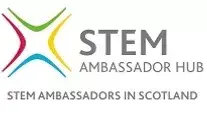
STEM Ambassadors in Scotland Week 2026
STEM Ambassador in Scotland (SAIS) Week is a celebration of all things STEM in Scotland through the experiences of our STEM Ambassadors.
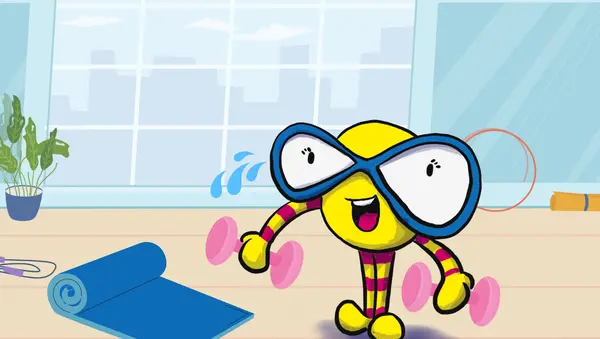
Active Maths Challenge
Start the year with our mini Active Maths challenge and measure what progress you can make over four weeks.
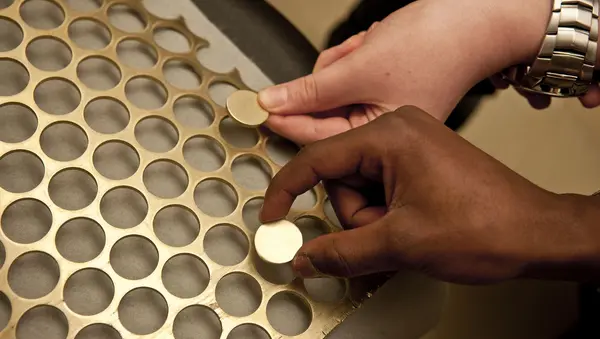
Money Maths at Museum on the Mound
We are excited to offer Maths versions of our popular money-themed schools workshops. These are entirely free of charge. Best suited for P5-P7 pupils.